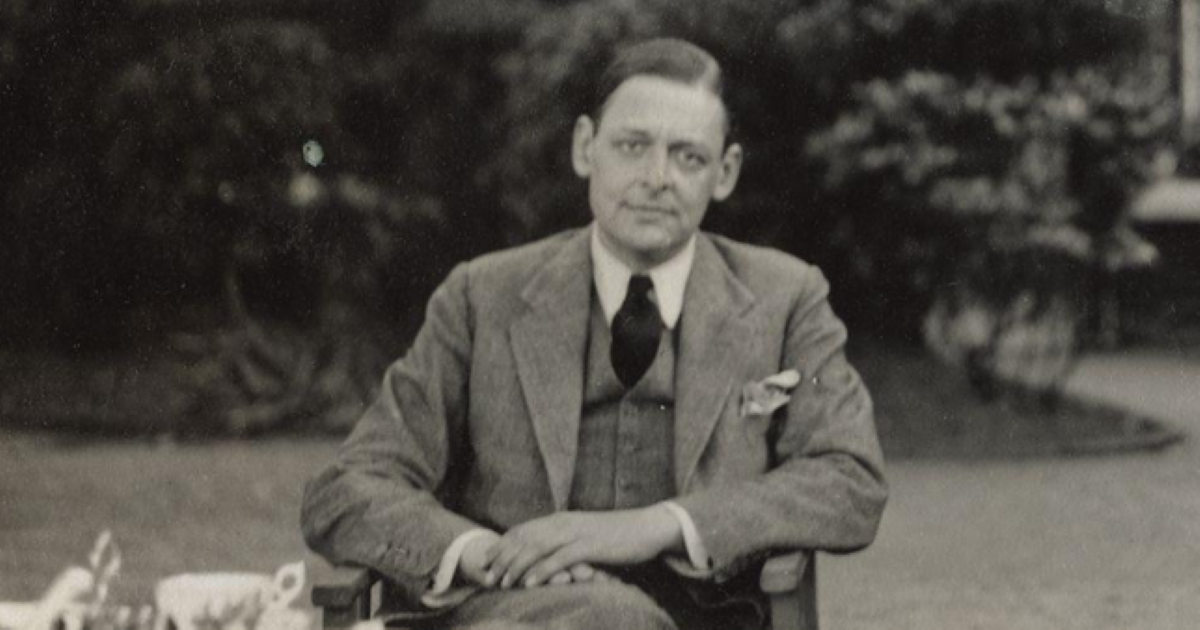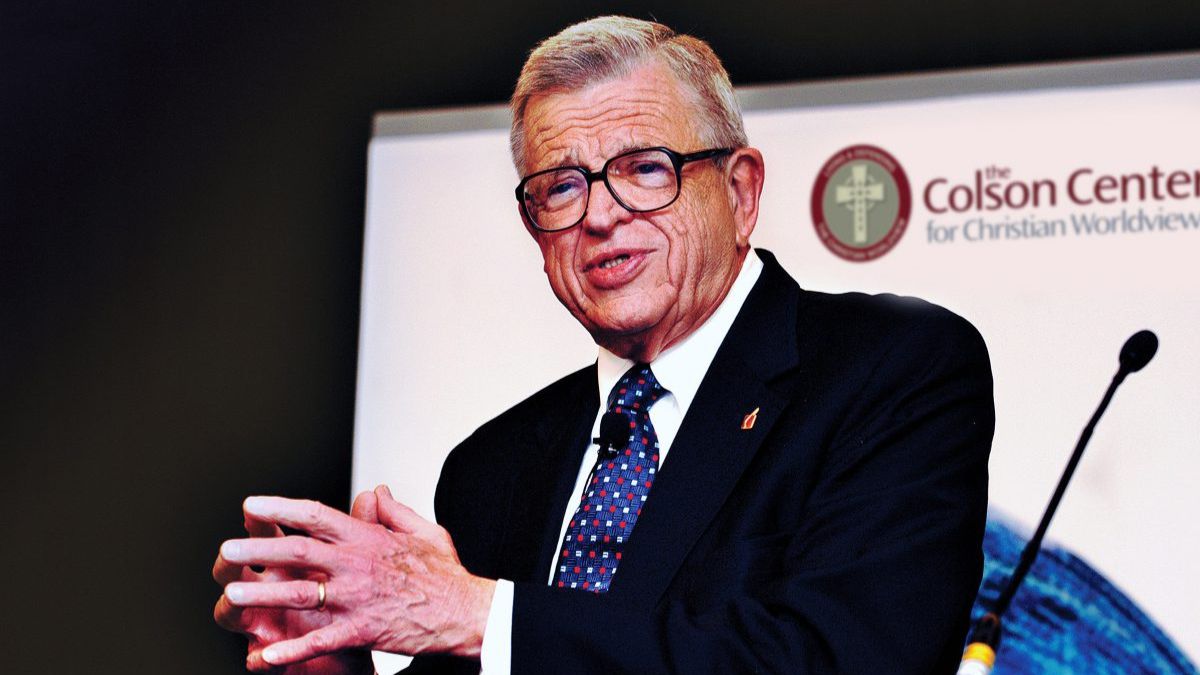


We ended 2019 thinking the Taylor Swift Cats movie would be the biggest embarrassment to the legacy of T. S. Eliot. We began 2020 wishing it were.
As you may have seen, Emily Hale donated the letters written to her by her pseudo-boyfriend, T. S. Eliot, to the Princeton University Library on the condition that they only be made public once they’d both been dead 50 years. Along with their release this month, an explanation from T. S. Eliot was provided to give context to their (non-sexual, but very real) affair.
In his mea culpa—which is earnest, beautiful, and sad—Eliot explains that he came to realize that he wasn’t in love with Hale, he was in love with the feeling of being in love with her he experienced as a young man. At one point he says:
“I came to see that my love for Emily was the love of a ghost for a ghost, and that the letters I had been writing to her were the letters of a hallucinated man, a man vainly trying to pretend to himself that he was the same man that he had been in 1914.”

In his mea culpa—which is earnest, beautiful, and sad—Eliot explains that he came to realize that he wasn't in love with Hale, he was in love with the feeling of being in love with her he experienced as a young man.
As a pastor, I’ve walked along side many men and women who blew up their lives with an affair. In each case, they thought they were doing it because of a girl or a guy. But Eliot is right, as he so often is: it’s never about the other person, it’s about the feeling that other person gives them, the feeling of youth.
As Milan Kundera put it in “The Unbearable Lightness of Being,” this sort of love is “the longing for the half of ourselves we have lost.” But, here’s the thing: God puts an angel with a sword outside of Eden precisely because He knew Adam and Eve would want to go back—there was eternal life back there, after all.
We live in an age which particularly idolizes youth-culture, but the temptation to relive childhood is common to all man. Life is behind us, death is before us, why not turn around?
Solomon encourages us not to pursue those things associated with youth (winking the eye, a quick temper), but rather the “crown of grey hair” gained through righteous living (Prov. 16:30-32). Don’t chase adolescence, strive for maturity.
Indeed, the whole of Scripture is eschatologically oriented thusly—what you’re looking for is in the future, so move ahead. Don’t go back to Eden. Don’t go back to Egypt. Don’t look back at Sodom. Put your hand to the plow, the Celestial City is just ahead.
But that’s not the whole story, of course. Before Adam and Even taste of life fully again, they have to die. To get to the Promised Land, Israel has to follow God’s appointed leader down to a watery grave. To experience resurrection, we have to do the same; we have to take up our cross.
You see, nostalgia is often little more than thinly disguised doubt. To seek out the euphoria of youth is to question, “Will He really part the sea?” “Is there really morning on the other side of this dawn?” Bored and ungrateful for the provision God has given us in the moment, doubtful of the milk and honey in our future, we lust after the days where we “sat by pots of meat and ate our fill of bread.”

You see, nostalgia is often little more than thinly disguised doubt. To seek out the euphoria of youth is to question, "Will He really part the sea?” “Is there really morning on the other side of this dawn?" Bored and ungrateful for the provision God has given us in the moment, doubtful of the milk and honey in our future, we lust after the days where we "sat by pots of meat and ate our fill of bread."
When preaching on the battle against sin, Thomas Chalmers stressed the “expulsive power of a new affection.” That is, to stop loving what we ought not to love, we need to fall deeper in love that which we ought to love. Until the gospel becomes believable and beautiful to us, no amount of gritting our teeth and doing the right thing for its own sake will do. Until we really believe there’s a treasure in the field, we won’t sell all that we have to buy it.
You may recall the spies whom Joshua sent into Canaan before God’s people took possession of it. They brought back fruit from the land so all the people could see it, and eat it, and have their spirits buoyed by it. What they had in part, they’d one day have in whole.
The Holy Spirit does nothing less for us today. He’s bringing the fruit of New Creation—in glimpses, in tastes—to strengthen us, to remind us of where we’re headed, to sustain us as we sojourn.
Life is behind us and death is ahead of us, true, but one day we’ll be able to say the reverse: death is behind us, now there’s only life ahead.
In perhaps my favorite Eliot poem, The Rock, he speaks of the modern man growing closer to the dust and further from God, “Nearness to death, no nearer to God.” Ironically, by avoiding the grave we fall into it, and by walking confidently into the pit we escape it. For whoever would save his life will lose it, but whoever loses his life for the sake of Christ will find it.
So, don’t turn around. Stay faithful. Look ahead. Age. Mature. Turn grey. Die. Resurrect.
Dustin Messer teaches theology at Legacy Christian Academy in Frisco, TX and ministers at All Saints Dallas.
Image: T. S. Eliot, Google Images














